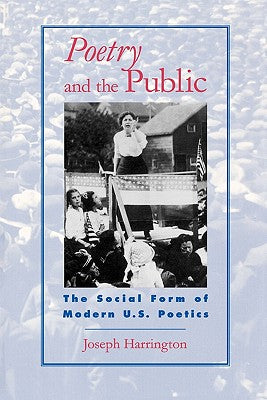Bestcostbooks.com
Poetry and the Public: The Social Form of Modern U.S. Poetics
Poetry and the Public: The Social Form of Modern U.S. Poetics
- Author: Harrington
- Condition: LikeNew
Couldn't load pickup availability
An informative account of the social meaning of poetry in the 20th century US.
Since Romanticism, poetry has reigned as the most exalted of literary forms; consequently, as Joseph Harrington argues in this new study, public debates about the nature and function of poetry are really debates about larger cultural and political values. In Poetry and the Public, Harrington sheds new light on changes in the textual form of poems, the critical reception of poems, debates in the popular press about the nature of poetry and the poetic theories of poets.
The period 1910-1940 represents a major transition in the social meaning of poetry in the U.S. Harrington focuses on three important factions of the US poetry scene during these years. The first, popularizers, wished to retain the older, popular notion of poetry as a public art, a communal experience shared between writer and readers. The second, high modernists, responded with the well-known notions of the self-sufficient art object and the autonomous artist who held no responsibility to a reading public or public affairs. The third group, poets of the radical labor movement of the 1910s, combined aspects of both popular and modernist poetries in order to intervene in specific historical settings or to interact with specific audiences.
Poetry and the Public shows how this more public tendency in poetry evolved into the latter half of the 20th century in forms such as poetry slams and community-based workshops, and how the history of poetry can help us understand the genre's relative absence from histories of American literature.
Share




